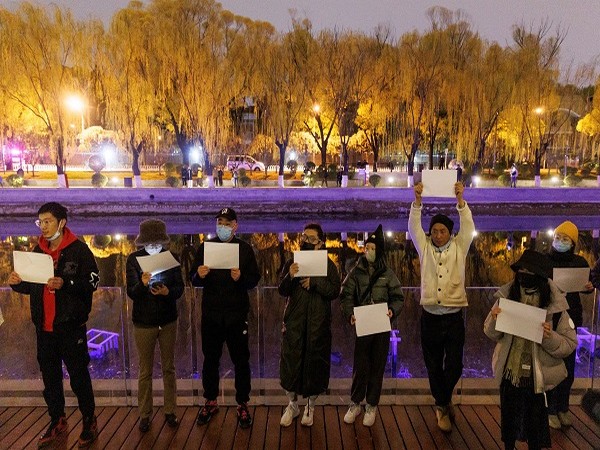Xi Jinping, Chinese Communist Party has fallen into a censorship trap, says US expert
Ge Chen, who is an assistant professor in Global Media and Information Law at Durham Law School, argued that "Xi and his party have fallen into a censorship trap."

- Country:
- United States
In the wake of recent nationwide protests in China against COVID curbs, US-based China analyst Ge Chen said the emergence of dissent in the Communist party-ruled country is surprising, even considering the vast distaste for COVID-19 lockdowns and the strong reaction to the aftermath of the fire in Urumqi. "Why are so many Chinese suddenly daring to shout slogans calling for regime change and the ousting of the paramount leader in a society where censorship is deeply rooted?" asked Ge Chen, in his article for Washington-based The Diplomat magazine.
Ge Chen, who is an assistant professor in Global Media and Information Law at Durham Law School, argued that "Xi and his party have fallen into a censorship trap." "In a one-man dictatorship that fails to completely block the free flow of information, the more precisely targeted at the dictator an allegedly inflammatory speech is, the less likely the dictator is to hear it," he said.
"In the process of handling political speech, the censoring authorities need to distinguish dictator-related speech from other forms of subversive speech and withhold the former from the dictator. Thus, the risk of extreme punishment for those making that collective statement is reduced," he added. On December 7, China announced nationwide loosening of coronavirus restrictions, allowing home quarantine for covid close contacts and scrapping covid test rule in most public venues.
This comes less than two weeks after large-scale protests gripped the country against the zero covid policy. In the last week of November, hundreds of people in Shanghai, China's biggest city and financial center, began publicly protesting against the government's strict Covid-19 measures. Demonstrators held blank banners - to evade arrest and minimize risk - and chanted slogans such as "Down with Communist Party" and "Down with Xi Jinping", the country's leader, according to New York-based Human Rights Watch (HRW).
On November 27, university students across the country gathered on their campuses to demonstrate, and that night, hundreds of people in Wuhan, where Covid-19 originated, Chengdu, Beijing, and other large cities, took to the streets. The protest in Shanghai was in response to a November 24 fire at an apartment building in Urumqi, the capital of China's northwest Xinjiang region, where at least 10 people were killed.
Media reports suspected residents were prevented from escaping the blaze due to pandemic control barriers, and Covid-related restrictions hampered emergency responders. Later, Urumqi residents gathered in front of a government administration building to mourn the deaths and protest Covid restrictions, which have kept the city under lockdown for over three months.
"Chinese authorities have badly underestimated the willingness of people across China to risk all to have their rights and liberties respected," said Yaqiu Wang, senior China researcher at Human Rights Watch. (ANI)
(This story has not been edited by Devdiscourse staff and is auto-generated from a syndicated feed.)










